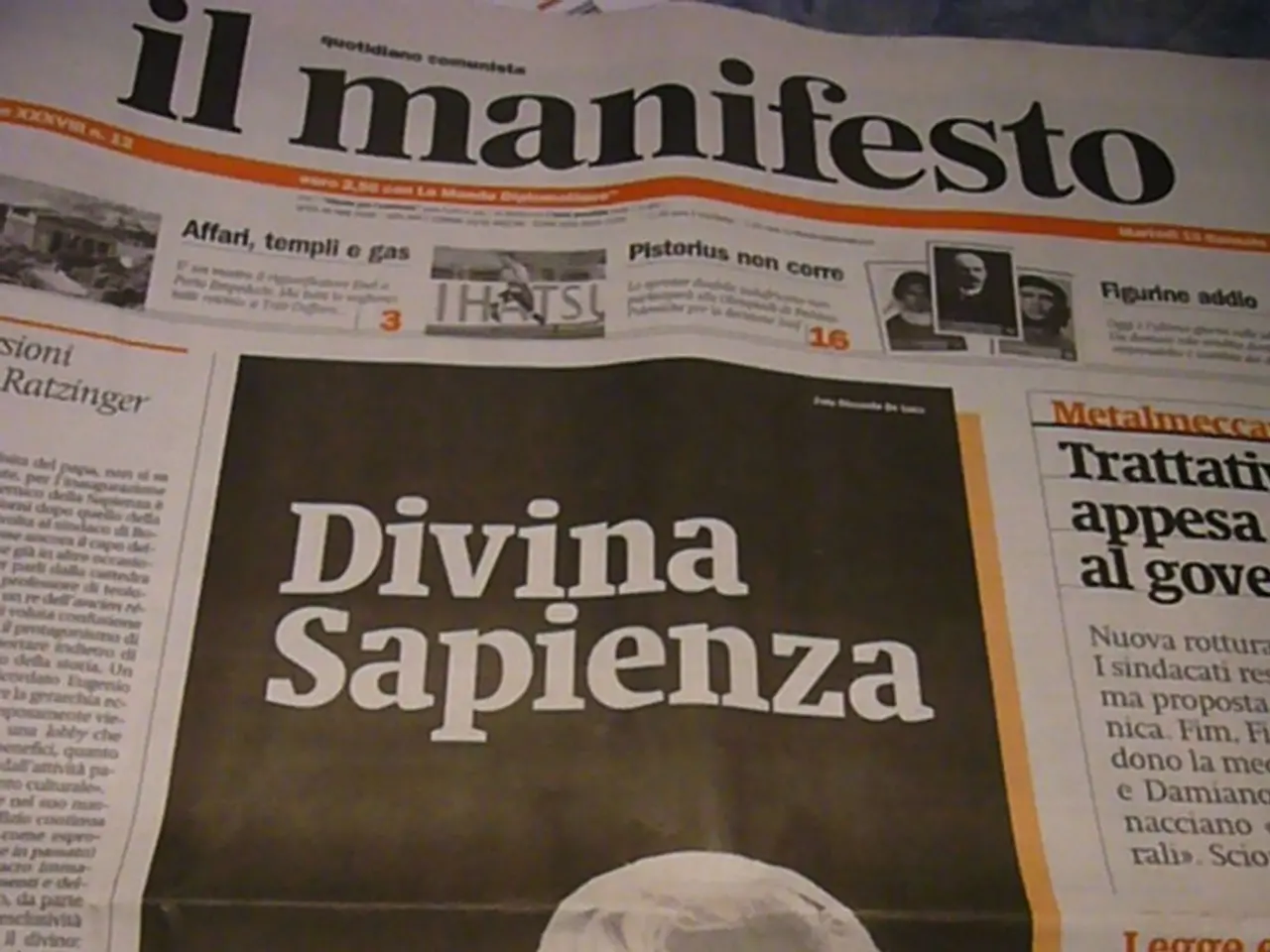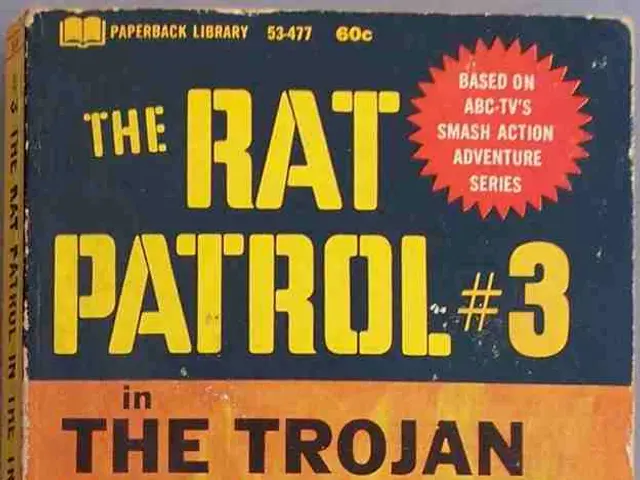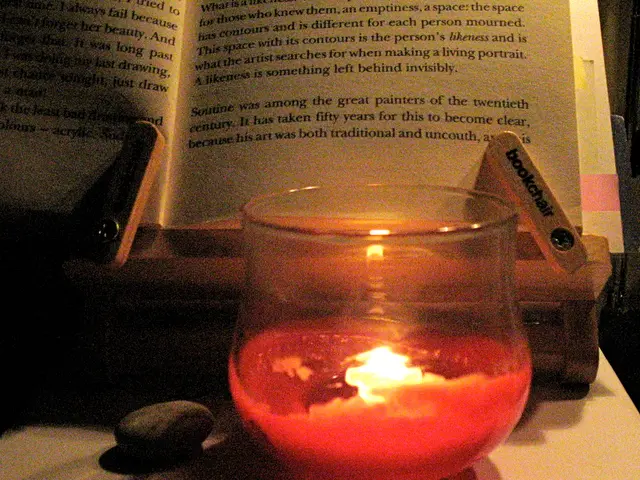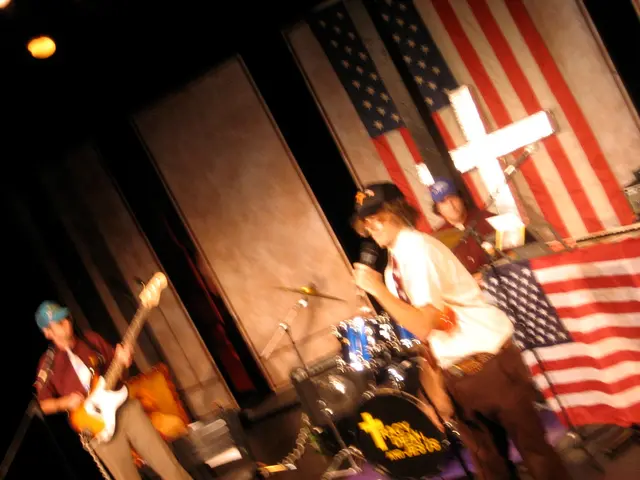Increasing Critique Surrounding the NDR Following Ruhs' Termination gains prominence
In a recent turn of events, German public broadcaster NDR announced that journalist Julia Ruhs would no longer be the moderator of the talk show 'Klarna,' a joint project with the Bavarian Broadcasting Corporation. The decision, reported by the Welt, has sparked controversy and criticism from various quarters.
The dispute appears to be rooted in the first episode of 'Klarna,' which addressed the father of a girl killed in a stabbing attack by a Palestinian. The episode, it seems, has been at the centre of a storm, with approximately 250 NDR employees signing an open letter criticising Ruhs and her show. The letter stated that it violates journalistic principles and does not meet the public broadcaster's mandate according to the NDR state treaty.
Julia Ruhs, the journalist in question, expressed her disappointment and shock over the NDR's decision. She attributed the decision to a lack of courage on the part of decision-makers at the NDR to stand up for themselves and resist 'cancel culture.'
The Bavarian Broadcasting Corporation, however, has decided to continue featuring Ruhs as the moderator for episodes produced by them.
The controversy has not been limited to the NDR. Anja Reschke, a presenter on ARD's 'Reschke-Fernsehen,' depicted the public as a puppet at the beginning of her show and, through this puppet, implied that Julia Ruhs and her team could be considered somewhat right-wing extremist. Reschke later apologised for the broadcast, stating that it may have given the impression that the 'Reschke TV' editorial team views the 'Klarna' editorial team as far-right.
Reschke was not alone in her criticism. Klaus Holetschek, chairman of the CSU state parliament faction, criticised the NDR's handling of Ruhs, stating that public broadcasters have a responsibility to represent diversity and not censor it. Holetschek expressed concern about the potential for 'cancel culture' in broadcasting, suggesting that excluding people from programs based on their political stance would be a threat to freedom of speech and democratic culture.
Martin Renner, media policy spokesman of the AfD federal parliament faction, also joined the chorus of criticism, describing the NDR's behaviour as evidence of political bias and calling for the immediate stop of forced funding for the broadcaster.
In a surprising twist, it was revealed that left-wing NDR employees, including Anja Reschke and Daniel Bröckerhoff, were involved in a bullying campaign against their conservative colleague, Julia Ruhs. Bröckerhoff, it should be noted, also teaches at the online academy of 'Correctiv.'
Julia Ruhs wrote a statement about the decision on a platform, currently displaying a placeholder content. To access the actual content, a button must be clicked, which involves sharing data with third-party providers.
As the dust settles, the future of 'Klarna' remains uncertain. Further episodes of the format are planned, but not with Ruhs as the moderator. The controversy underscores the delicate balance between journalistic integrity, freedom of speech, and the responsibility of public broadcasters to represent diverse opinions.
Read also:
- United States tariffs pose a threat to India, necessitating the recruitment of adept negotiators or strategists, similar to those who had influenced Trump's decisions.
- Weekly happenings in the German Federal Parliament (Bundestag)
- Southwest region's most popular posts, accompanied by an inquiry:
- Discussion between Putin and Trump in Alaska could potentially overshadow Ukraine's concerns







